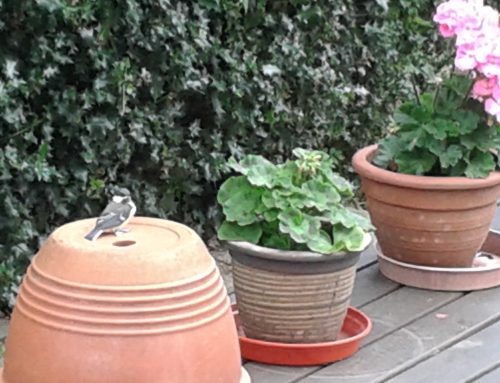Two nights ago, I had a vivid and upsetting dream. My house had been invaded by thieves. As often in a dream, it was both a familiar house and one I only partly recognised. The strange men were pulling wooden cladding off the walls and carrying out beds. They didn’t seem to see or hear me as I remonstrated. I decided to dial 999, but the big bakelite telephone had been cut off – that element of the dream had a strong Alfred Hitchcock feel. Then I woke up.
The dream hung around all day with its sense of invasion and violation but there was also a niggle that it reminded me of something else, something that made me want to smile.
Eventually, some lines from a Rumi’s poem The Guesthouse popped into my head:
Even if they’re a crowd of sorrows,
who violently sweep your house
empty of its furniture,
still treat each guest honorably.
He may be clearing you out
for some new delight.
Suddenly, I experienced the dream differently. Yes, there was an invasion but the idea of being cleared out ‘for some new delight’ became the prominent idea. The business of the telephone seemed funny rather than threatening – reminiscent of old black and white melodramas with someone playing a mad piano in the background. The dream and I lightened up.
The Guesthouse, in its translation by Coleman Barks, is another iconic poetry therapy poem. It can work on a seemingly infinite number of literal and metaphorical levels. I’ve used it in groups dozens of times and there is always a new insight or different reading that emerges. A quick Google of the poem brings up 200,000 pages, many of them interrogating the poem in interesting ways for its religious, spiritual and personal perspectives.
Poetry therapy values poems that are ‘richly ambiguous’ and this is one. Dreams are invariably richly ambiguous and I know that there is much more to the one I describe and that it would be useful to revisit it.
Rumi, a thirteenth century Sufi mystic, is one of the best-selling poets in the US and UK. He has almost half a million Likes on his Facebook page. This is testament to the freshness of Coleman Barks’ translations. There are also excellent versions by Robert Bly. As I am currently attempting to translate some poems with a Georgian colleague, I am increasingly in awe of the craft and creativity required to render a work from a very different language, let alone another culture, into meaningful English.
Some questions emerged for me that I may explore in writing. Rumi challenges us to treat everyone who comes into our lives as ‘guests’. Have I invited the thieves? How can I treat them honourably? If I sat down with one, what would I ask him? What might he tell me?
If you are interested in the interface between writing and dreams, this website and blog by Jenny Alexander comes highly recommended.
2 Comments
Leave A Comment
You must be logged in to post a comment.











Thanks for the mention, Victoria :) What a wonderful dream, evolving in your consciousness throughout the day, under the magical influence of poetry. I’ve always loved that poem!
I found all this fascinating and hope to explore it more deeply.